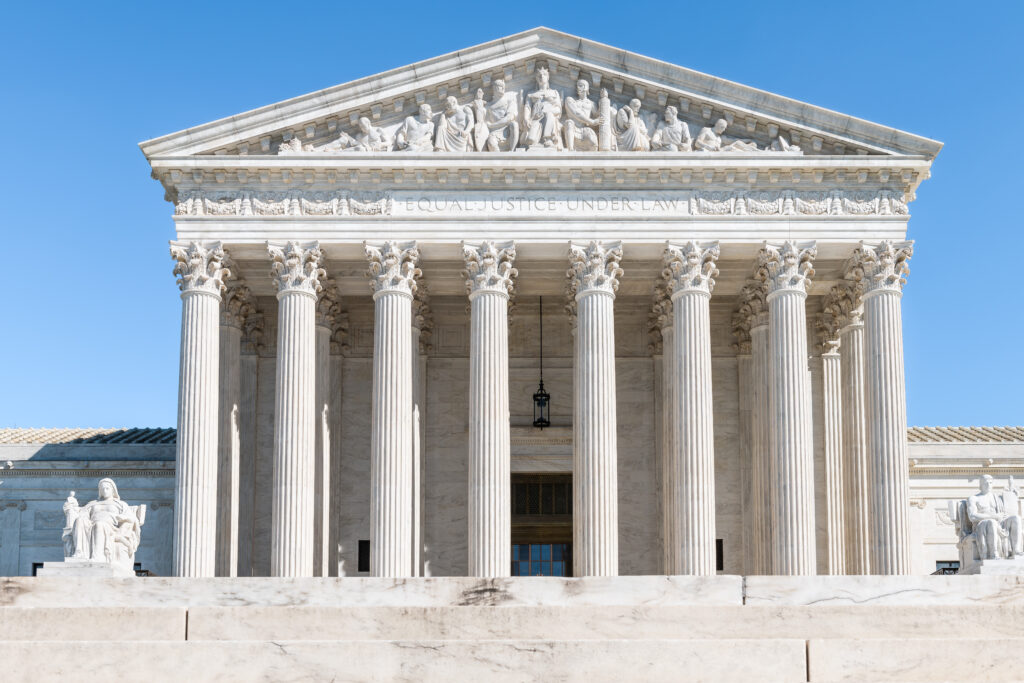SCOTUS Says Trump Violated Venezuelan Migrants’ Rights With Attempted Removals

The Supreme Court in a 7-2 ruling Friday said the Trump administration violated the due process rights of Venezuelan migrants in its rushed effort to remove them from the U.S. last month using the Alien Enemies Act (AEA), a 1798 wartime law.
Through its order, the Supreme Court extended its pause on AEA removals from the Northern District of Texas. However, the court did not determine whether the Trump administration can ultimately carry out removals using the AEA.
Instead, it asked the U.S. Court of Appeals for the Fifth Circuit to determine whether Trump’s proclamation of the AEA was legal and how much notice is due to those targeted by the act.
In an overnight ruling last month, SCOTUS halted the Trump administration from using the AEA to remove Venezuelans held in an immigration facility in northern Texas “until further order of this court.”
The court’s ruling was in response to an emergency appeal from the ACLU after the Fifth Circuit dismissed the Venezuelan migrants’ request for a temporary injunction against AEA removals.
In Friday’s order, the Supreme Court said the Fifth Circuit “erred in dismissing the detainees’ appeal for lack of jurisdiction.”
“The District Court’s inaction—not for 42 minutes but for 14 hours and 28 minutes—had the practical effect of refusing an injunction to detainees facing an imminent threat of severe, irreparable harm. Accordingly, we vacate the judgment of the Court of Appeals.”
While granting the migrants’ appeal, the Supreme Court also rebuked the Trump administration for not complying with its previous order on removals using the wartime act. In that order, SCOTUS said that those subject to removals must be given an adequate amount of notice and a change to challenge.
“Under these circumstances, notice roughly 24 hours before removal, devoid of information about how to exercise due process rights to contest that removal, surely does not pass muster,” the court said.
In a concurring opinion, Justice Brett Kavanaugh said he believes the matter should not be sent back to the lower courts to decide.
“The circumstances call for a prompt and final resolution, which likely can be provided only by this Court,” Kavanaugh said. “At this juncture, I would prefer not to remand to the lower courts and further put off this Court’s final resolution of the critical legal issues. Rather, consistent with the Executive Branch’s request for expedition—and as the detainees themselves urge—I would grant certiorari, order prompt briefing, hold oral argument soon thereafter, and then resolve the legal issues.”
Justices Samuel Alito and Clarence Thomas dissented to the court’s order.
This story has been updated with additional details.